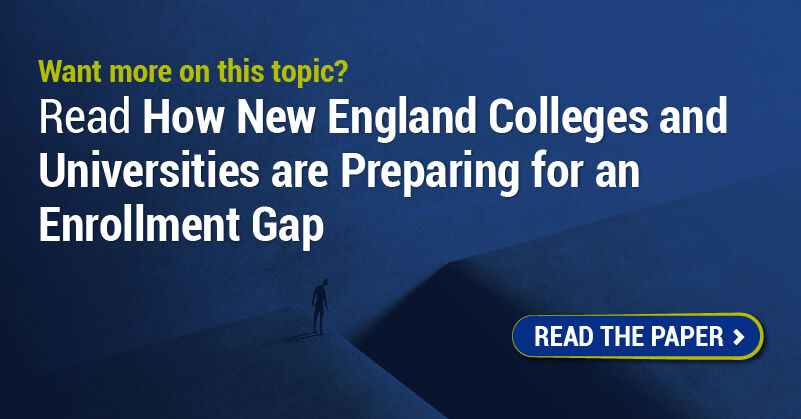The soon-to-decline number of high school graduates may foreshadow a new enrollment dilemma for colleges
Colleges and universities that are already struggling with lower enrollment numbers may have a bigger problem on their hands later this decade when the number of students graduating from high school each year finally begins to decrease. “Nationally, that number is expected to peak at nearly four million in 2025, and then decline until 2037. The size of that year’s high-school graduating class… will be [an estimated] 3.52 million — about the same as the Class of 2014.” In recent years, the actual number of high school graduates has occasionally turned out to be higher than predicted, such as in 2017, when the number of minorities who graduated exceeded expectations. “But that doesn’t change the key storyline: After 2025, there will be fewer prospective high-school graduates, the result of a decline in birthrates during and after the Great Recession.”
Source: Chronicle of Higher Education

When it comes to earnings, it’s not where you study but what you study that matters
“If you pick the right field, even a community college degree can offer higher earnings than a four-year degree.” That’s the gist of a recent Education Department report on college graduates’ earnings up to two years after graduation, based on their majors and the types of schools they attended. The median bachelor’s degree is associated with a salary of approximately $38,000 two years after the completion of studies. More than half of the programs with graduates’ medium earnings of $45,000 to $60,000 were in a business field. “The overwhelming majority of programs with earnings above $60,000 were in just three fields of study: computer science, engineering and nursing… Many two-year college degrees have higher median earnings than the typical bachelor’s degree. About 30% of two-year college students graduate from a program that typically pays more than $40,000 per year, most of them in health care-related fields.”
Source: Forbes
Half of today’s college students say COVID-19 may prevent them from completing their education
According to a new Gallup study of more than 6,000 college students pursuing associate or bachelor’s degrees, 51% “report that COVID-19 is ‘very likely’ or ‘likely’ to impact their ability to complete their degree.” On a more positive note, 80% of first-time students rated the quality of the education they have received this fall as either “excellent” or “very good,” compared with 73% of those who began their studies earlier. Among those pursuing a bachelor’s degree, 76% of respondents described the quality of their education as “excellent” or “very good.”
Source: Gallup
Student mental health is the top concern of college presidents
Asked to choose their five most “pressing concerns” from a list of 18 options, 70% of college presidents cited student mental health one of their biggest worries. The top-five list also included: the mental health of faculty and staff (60%); enrollment numbers for the spring (40%); their institution’s long-term financial viability (38%) and short-term financial viability (31%). Generally speaking, presidents’ concerns differed based on the type of institution they oversee. For example, “a higher share of presidents of public two-year institutions (54%) than that of presidents of public four-year institutions (35%) and presidents of private four-year institutions (35%) indicated that enrollment for the spring was a pressing issue.” Overall, 23% of presidents said enrollment increased this fall compared with last fall. Fifty-four percent said it decreased and 22% said it “stayed about the same.”
Source: American Council on Education
